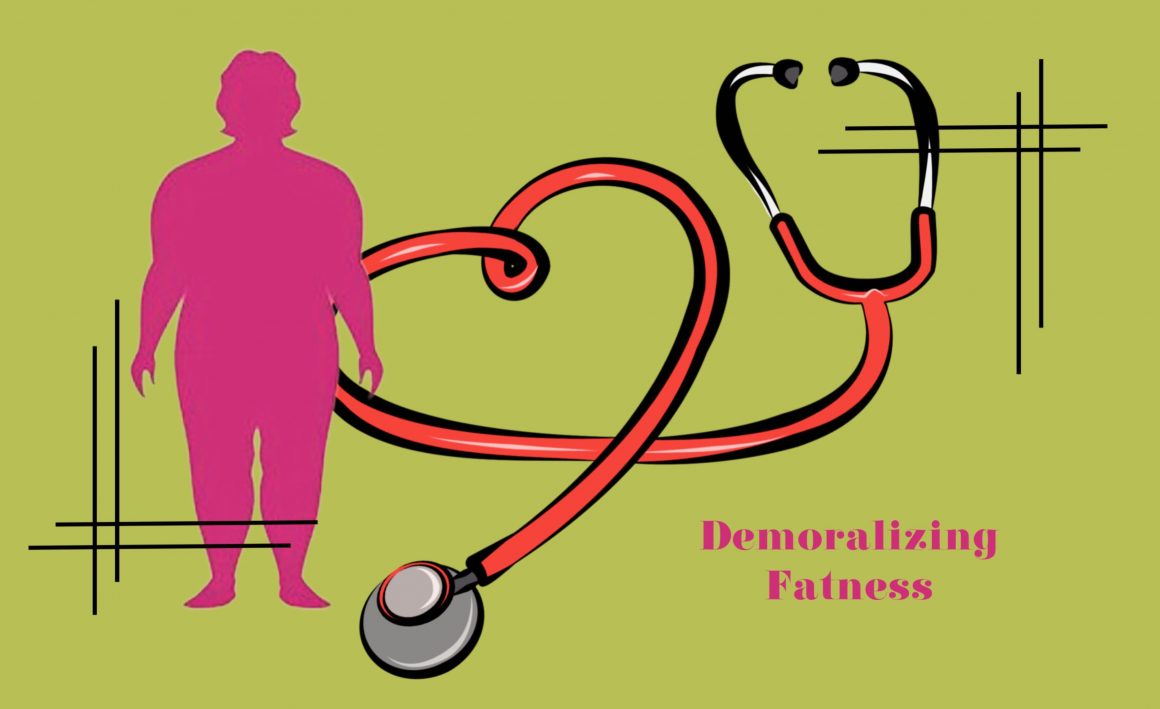
Demoralizing Fatness: How weight is seen as a moral dilemma
By Aymen Sherwani, April 13 2023—
“Fatphobia tells us our moral, sexual, and intellectual value is determined by our weight,” said Kate Manne, associate professor of philosophy at Cornell and speaker for the Calgary Institute for the Humanities event on Demoralizing Fatness. “That’s absurd; it’s deleterious; and it gaslights us into dieting. In 2023, vow to fight fatphobia, not your own body. Be unshrinking.”
Manne, who is the author of Down Girl: The Logic of Misogyny (2018) and Entitled: How Male Privilege Hurts Women (2020) is currently working on her third book, titled Unshrinking: How to Face Fatphobia — set to hit shelves in 2024. As a researcher who has completed graduate work in moral philosophy, feminist philosophy and social philosophy at MIT, Manne makes the argument that the moralization of fatness should not exist. In true philosopher fashion — one first asks what moralization looks like in the first place.
“Through a variety of channels — the news, entertainment, social media, and ordinary conversation — fat bodies are depicted as a moral problem, and fat people as a moral failure,” reads Manne’s statement posted by the Calgary Institute for the Humanities. “The atmosphere may be one of moral panic or, by turns, patronizing concern and ostensibly well-meaning hand-wringing.
“The best argument to the conclusion that one is morally obligated not to be fat — namely, that fatness represents a burden on the health care system — turns out to be surprisingly weak,” she added. “Not being fat is simply not a moral obligation…fatness has wrongly been moralized, in view of the disgust often garnered by fat bodies.”
A 2019 study found that a greater moralization of obesity and perceived fatness actually contributed to a stronger public belief that obesity can be controlled, moreover, further contributing to the disgust surrounding obese people in addition to their subsequent mistreatment. As a result, there are specific narratives and profiles that are generated about them as lazy or lacking the necessary work ethic to be able to retain a healthy lifestyle — overlooking the reality that obesity intersects other, often uncontrollable, health conditions like genetics, hypothyroidism or injuries that prevent one from being at a weight deemed as acceptable.
Speaking further on genetics — the origins of fatphobia can actually be traced all the way back to the Atlantic slave trade, as addressed by Manne. African cultures have strong connections to food and many enslaved persons at the time were larger than their oppressors because of this connection.
“We wanted to be able to have a mechanism for ensuring that we could recognize who was a slave and who was free, right? And it was easy in the beginning of the slave trade; it was simply skin color. But as you might imagine…” said Sabrina Strings, author and professor of sociology at the University of California, Irvine to NPR. “And so eating and body size became two of the characteristics that were being used to suggest that these are people who do not deserve freedom.”
She continues to argue that the system of measurement referred to as the Body-Mass Index (BMI) is embedded in racist attitudes, as it fails to account for ethnocultural differences when determining what is considered healthy — therefore, routinely placing individuals with genetically higher BMIs in overweight and obese categories, accompanied by the negative attitudes that accompany such labels. In that regard, moralized attitudes about weight and race are intertwined and often seek to categorize certain demographics as lazy because they are genetically larger in comparison to other demographic groups that are rewarded for their work ethic but also conveniently weigh less on average.
In addition to this, another study found that individuals that expressed higher attitudes toward moralized obesity were less likely to categorize obesity as a health condition and more as a lifestyle choice. With that in mind, racialized discrimination on the basis of presumptions about healthcare — particularly the idea that fatness is an indicator of work ethic or lack thereof — is normalized under the guise of public concern and welfare. It is that same rhetoric that holds many back from employment opportunities as their bodies become an unspoken assessment of their ability to perform in the workplace. It is that same attitude that also prevents overweight and obese people from wanting to seek medical care as well.
“Every symptom, from ear infections to endocrine issues, was attributed to my size and met with a requirement of weight loss,” wrote Aubrey Gordon, regarding the way doctors interacted with her in the past. “Every doctor I saw looked past me. They did not ask about my diet or exercise. Instead, my body spoke on my behalf, proof positive of my assumed irresponsibility and neglect.”
Manne’s argument advocating to re-evaluate the way the public navigates fatness is one that not only challenges the overlooked racial elements that exist in healthcare, but also seeks to dismantle the shame that should` not exist in the first place if one is not able to fit into a Eurocentric standard of health. Treating larger bodies with the respect, dignity and complexity that is inherent in every person is long overdue.
This article is a part of our Voices section and does not necessarily reflect the views of the Gauntlet editorial board.
